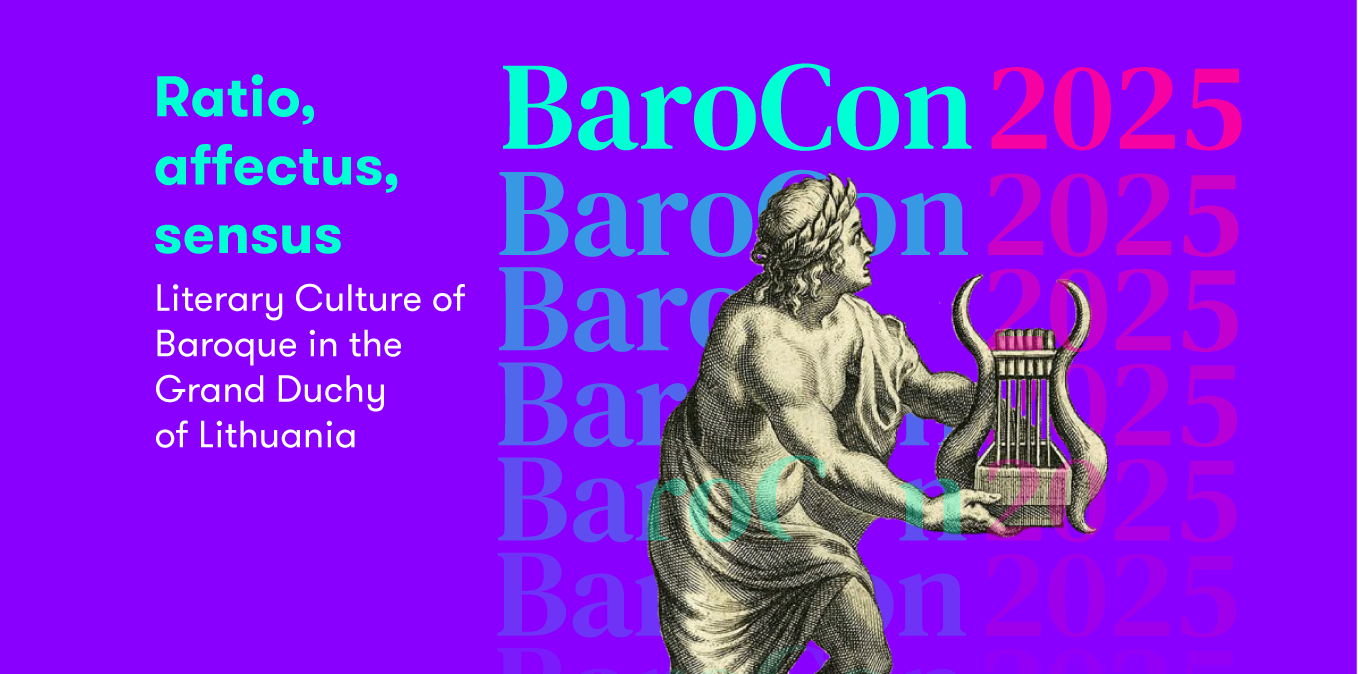Ratio, affectus, sensus: Literary Culture of the Baroque in the Grand Duchy of Lithuania
In 2025, we will commemorate the 400th anniversary of the first publication of Matheus Casimirus Sarbievius' most famous Latin poetry collection 'Lyricorum libri tres' (1625). This has led to 2025 being declared the Year of Baroque Literature in Lithuania. The eminent Jesuit neo-Latin poet of the Polish-Lithuanian Commonwealth, Sarbievius, has been hailed as the Christian Horace and the Sarmatian Horace. His theoretical thoughts on poetry and rhetoric are still highly regarded and have inspired new research on other concurrent themes and authors. This anniversary provides an opportunity to explore the extent and diversity of Baroque literary culture, which has seen a surge of interest in recent decades, both in the academic world and in popular culture. Therefore, the Institute of Lithuanian Literature and Folklore, together with the Faculty of Philology of Vilnius University, is organising an international academic conference "Ratio, affectus, sensus: Literary Culture of the Baroque in the Grand Duchy of Lithuania" on 25-27 September 2025 in the baroque city of Vilnius.
The aim of the multidisciplinary conference is to stimulate discussion on the literary culture of the "long seventeenth century" (from the end of the 16th century to the middle of the 18th century) in the Grand Duchy of Lithuania. This historical period, associated with dramatic changes and a general cultural crisis, is often described in contradictory terms and in constant tension between reason and senses, rigid structure and passions, classifications and impressions, etc. By embracing this contradiction, we invite an exploration of the theme in question through the lens of this dynamic interplay between reason (ratio), emotion (affectus) and the senses (sensus), which can be perceived in various genres of the period, such as poetry, biography, hagiography, rhetoric, private and public correspondence, and so on. The importance of the modern approach lies not only in what it can reveal about the Baroque in the Grand Duchy of Lithuania, but also about subsequent and contemporary literary culture, as scholars have demonstrated the continuing influence of a 'Baroque spirit'.
Keynote speakers

Ona Dilytė-Čiurinskienė
Senior Researcher, The Institute of Lithuanian Literature and Folklore
Prof Stephen Harrison
Professor of Latin literature, University of Oxford
Mikołaj Walkowicz
In the clash with the plague. The image of the plague in Lithuanian Baroque and post-Baroque texts
Mikołaj Walkowicz
Jagiellonian University
In the clash with the plague. The image of the plague in Lithuanian Baroque and post-Baroque texts
Keywords: plague, literary visions of diseases, applied literature, medical writing
The plague was one of the permanent elements of the early-modern world. It left its stamp on almost every generation, being a constant reminder of the fragility of life. This resonated with the literary world, which made various attempts to describe the nature of the plague, which led to publications trying to tell of as accurately as possible the causes and treatment of the disease, books containing a number of magical formulas to counteract it, and a plethora of literary texts attempting to convey the emotions associated with the onset of the plague. Faced with the impossibility of determining the actual causes of that disease throughout the early-modern period, both utilitarian writings, which served as a kind of handbook against the plague, and literary texts, operated on a series of customs and imaginings, the aim of which was to tame a reality that was impossible for the people of the time to comprehend. Previous studies of works touching on the subject of the plague in various ways have mainly focused on the analysis of individual works, or attempts to synthesise the themes as a whole. In this presentation, an attempt will be made to analyse the subject matter of plague-related writing more broadly. On the basis of literary and applied texts, the reception of certain contents, sometimes known throughout Europe, as well as concepts originating in the Lithuanian lands will be presented, and an attempt will be made to answer the question of whether a periodisation and clariography can be pertained to applied texts dealing with the plague.


